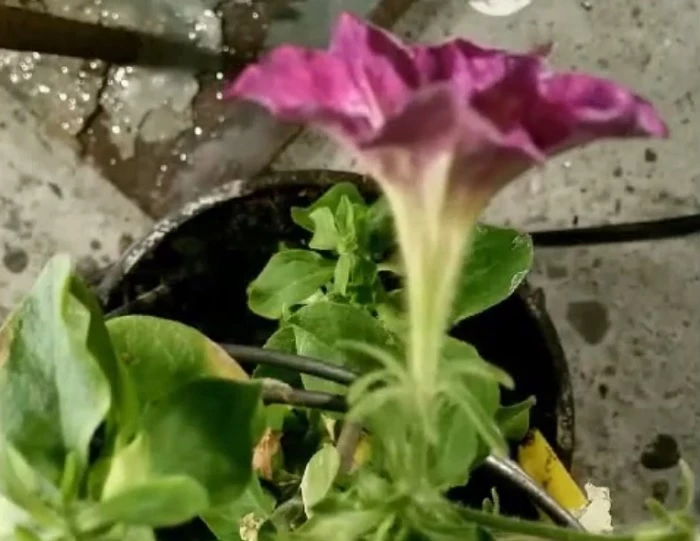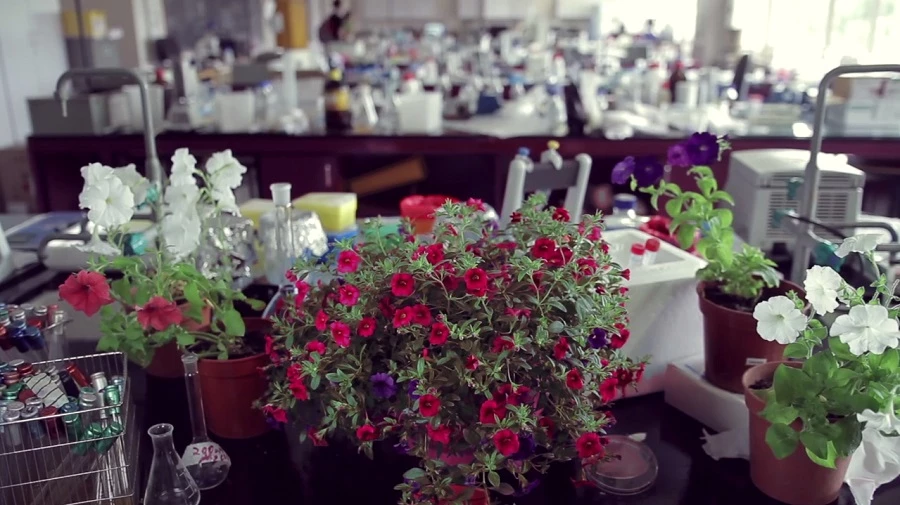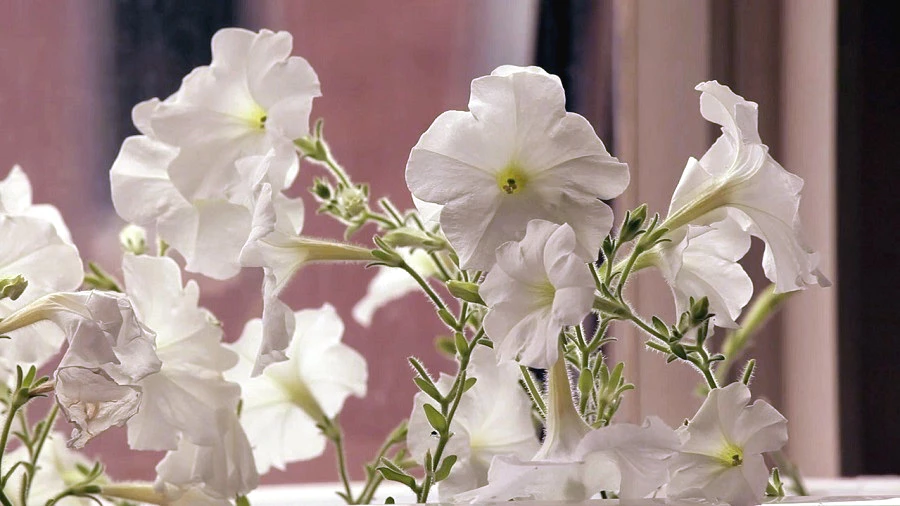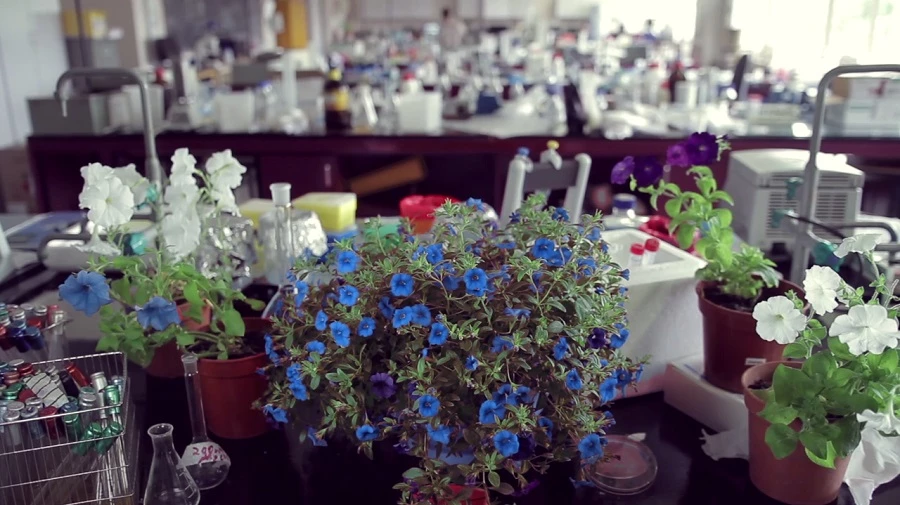Nature has done a pretty great job of making flowers all colorful and lovely to look at. Have you ever thought, though, that they might look even better even they changed color? That's what plant biotech firm Revolution Biotechnology (RevBio) thought, so it's modified plants to do exactly that.
There's a fun and simple experiment in which you can put some white flowers in water containing food coloring, and watch the petals change color as they absorb the water. The RevBio method is a little more advanced than that, but white petals are still a good starting point.
Flowers that are brightly colored, explains the company, produce small molecules called anthocyanins that can be red, blue, or other colors. In flowers that are white, an enzyme is often not functioning and the molecules can't be produced.

According to RevBio, if you know which enzyme is not working, the process can be fixed and the flower can gain color. The company has modified a petunia to do just this when a certain molecule is present. When watered with a dilute ethanol, such as beer, the plant turns from white to red in 24 hours. The change can then be reversed by using regular water.
Of course, a plant need not be ill-functioning to be modified – it's possible to modify the instructions in the DNA of any plant. Furthermore, says RevBio, the instructions can be modified so as to express the plant's enzymes in patterns across the petals or even under certain environmental conditions, such as temperature.

This is what the company says it has done to create what it calls the Petunia Circadia, a Petunia that changes from red to blue and back again over the course of a day. This was reportedly done by linking the plant's circadian clock to change the environment of its anthocyanins and, subsequently, its color.
RevBio is raising money for its creations via an Indiegogo campaign. Individuals can pledge from US$42 to receive a color-changing petunia, assuming all goes to plan with the campaign. They are expected to be available from 2017.
The video below is the Indiegogo pitch from RevBio.
Sources: Revolution Bioengineering, Indiegogo






